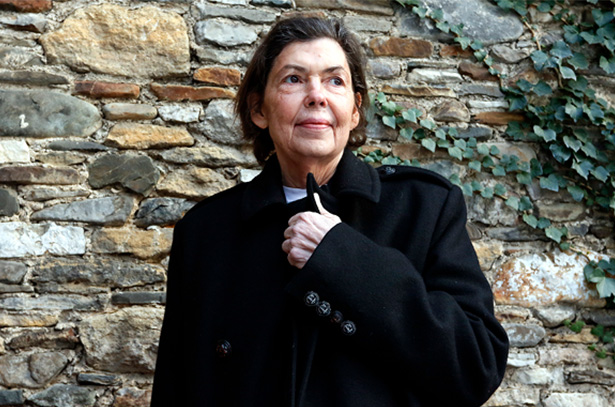
Isa Genzken
Hallelujah
14 April - 19 May 2012
Zürich, Hubertus Exhibitions
Installation views
About the Artist

Isa Genzken
Isa Genzken has long been considered one of Germany’s most important and influential contemporary artists. Born in Bad Oldesloe, Germany, Genzken studied at the renowned Kunstakademie Düsseldorf whose faculty at the time included Joseph Beuys, Bernd and Hilla Becher, Benjamin H.D. Buchloh and Gerhard Richter. Since the 1970s, Genzken’s diverse practice has encompassed sculpture, photography, found-object installation, film, drawing and painting. Her work borrows from the aesthetics of Minimalism, punk culture and assemblage art to confront the conditions of human experience in contemporary society and the uneasy social climate of capitalism.Genzken is best known for her sculptures, gaining attention for her minimalist oriented Hyperbolos and Ellipsoids in the late 70s, and architecturally-inflected works such as her recent epoxy resin windows and skyscraper Columns from the 90s. Genzken’s practice is incredibly wide-ranging, but her work remains dedicated to challenging the viewer’s self-awareness by means of physically altering their perceptions, bringing bodies together in spaces and integrating elements of a mixed media into sculpture.
Genzken’s totemic columns, pedestal works and collages combine disparate aspects from her many sources in seemingly nonsensical, yet harmonious sculptural compilations. These sculptures take the form of precariously stacked assemblages of potted plant designer furniture, empty shipping crates and photographs, among other things, arranged with the traditions of modernist sculpture in mind. With this cacophonous array of objects, Genzken undermines the classical notions of sculpture, re-creating the architectural dimensions of her beloved skyscrapers and the riotous colors of the city streets. Devoid of the weightiness and overpowering scale seen in the sculptures of her Minimalist predecessors, her work abandons notions of order and power, allowing the viewer to relate to the works’ inherently human qualities of fragility and vulnerability.
Inspired by the stark severity of modernist architecture and the chaotic energy of the city, Genzken’s work is continuously looking around itself, translating into three-dimensional form the way that art, architecture, design and media affects the experience of urban life, and the divides between public and private. There is an intuitive and consistent manner to Genzken’s work, not only in dramatising aspects of space and scale for the audience, but in creating new dialogues and contact with surfaces of material. The socio-political content is evident and central to her oeuvre.
In 2017, Genzken was awarded the prestigious Goslarer Kaiserring (or Emperor’s Ring) by the city of Goslar, Germany.
Current Exhibitions
1 / 10



































